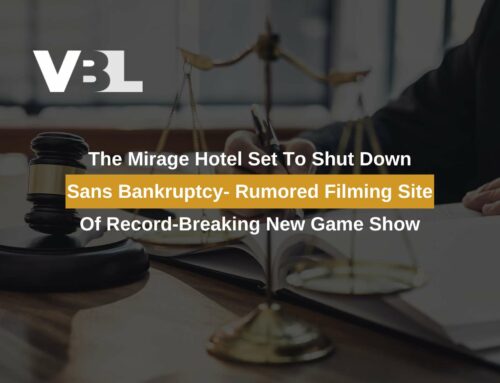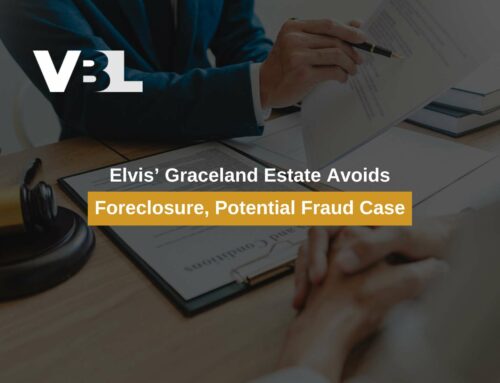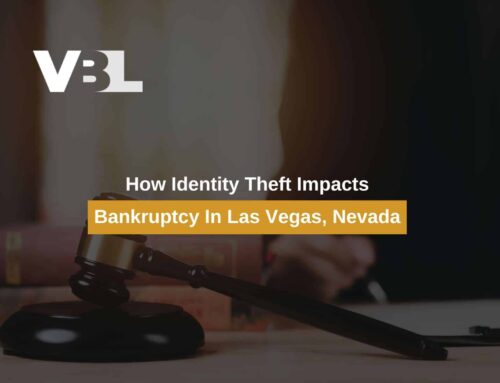How Identity Theft Impacts Bankruptcy In Las Vegas, Nevada
Sometimes after a long day at work, you want a hearty and delicious meal without having to make it yourself. You might even want some sides, like macaroni and cheese or assorted vegetables. For years, busy families looking for a convenient option without resorting to drive-through fried foods have turned to Boston Market. The eatery chain was founded in 1985, unsurprisingly, in Boston, Massachusetts. It ballooned in popularity and eventually grew to approximately 970 locations across the United States. However, the tides have turned for Boston Market and it now appears that the restaurant will be going out of business. After multiple bankruptcy filings, the company is still in dire financial straits.

Boston Market’s First Bankruptcy
In 1996, Boston Market announced its plans to open 2,700 locations in addition to its existing 970 locations by 2003. This ambitious plan equates to 350 new restaurant locations per year. It is considered risky for even the most successful restaurant chain to increase its stores by more than 25% annually. In 1998, Boston Market declared bankruptcy with approximately $700 million in debt. This filing led to a bankruptcy sale to McDonald’s for a purchase price of $173.5 million. McDonald’s closed some of the 751 Boston Market locations it acquired and converted them into other restaurants under their company umbrella.
In 2003, McDonald’s cut its capital spending budget, or money spent on its corporation partner brands, by $800 million. This led to McDonald’s selling Boston Market to Sun Capital Partners in 2007. Sun Capital Partners attempted to rebrand Boston Market to make it more profitable. In 2011, they implemented a program to train staff to increase customer service and introduced menu items like hand-carved sandwiches. These changes led to a 2013 deal with the Army & Air Force Exchange Service to open Boston Market locations on military bases.
Sun Capital Partners sold Boston Market to Engage Brands of the Rohan Group in 2020. This company is owned by Jingnesh “Jay” Pandya, who had already made a name for himself in the industry by operating franchise locations for restaurants like Arby’s, Pizza Hut, and Dunkin’ Donuts. He also tried, albeit unsuccessfully, to introduce a professional cricket league to the United States. After acquiring Boston Market, Pandya claimed the restaurant chain would be opening two new locations per week, an astronomical figure for any restaurant, especially one with a history of financial struggles. He also ordered employees to refuse to pay suppliers unless they offered steep discounts. This caused several locations to stock their restaurants with food from grocery stores or to simply shut down.
As one might imagine, refusing to pay food suppliers as a restaurant owner can have disastrous consequences. Boston Market has been named as the defendant in more than 150 lawsuits since 2020. In February of 2024, US Foods secured the largest judgment against Boston Market so far in the amount of $11.9 million. Other parties pursuing Boston Market as creditors include food supplier Ben E. Keith for $515,000 and commercial refrigerator supplier Polar Leasing Company for $338,000. McDonald’s has executed two lawsuit evictions against its former brand for failing to pay rent at two locations. In the summer of 2023, 27 New Jersey Boston Market locations were closed due to Boston Market’s refusal to compensate employees for more than $600,000 in unpaid wages.
Jay Pandya’s Personal Bankruptcy
Jay Pandya filed for a personal bankruptcy in December 2023. His case was dismissed in January 2024 due to his failure to provide information to the court about his assets. He filed for bankruptcy again six months later, which was also dismissed. The judge also ordered that Pandya could not file for bankruptcy again for at least six months. Whether these filings were meant to delay other pending lawsuits or protect Pandya’s personal assets, they were unsuccessful.
Since Pandya’s failed bankruptcy filings, Boston Market began offering waived franchisee fees. Typically, anyone seeking to own a Boston Market location would need to pay thousands of dollars for the opportunity. Potential franchise owners that already owned restaurants or delis only needed to answer a brief questionnaire to be accepted. Pandya also announced his intentions to implement a new strategy of introducing new menu items each week, particularly Indian food. However, this did not occur. As of March 2024, there were only 27 Boston Market locations left.
Chapter 11 Failures vs. Chapter 13 Failures
Chapter 11 is a highly complex form of bankruptcy, so it is mostly used by individuals or businesses with extensive assets and debts, such as Boston Market. When a bankruptcy case is complex and expensive to file, there is all the more reason to strive for accuracy in the bankruptcy petition to avoid dismissal. A case dismissal can negate all of the benefits that come with a bankruptcy filing. This is because when a case is dismissed, the debtor is no longer protected by the automatic stay. The automatic stay becomes effective when a bankruptcy petition is filed, and stops creditors from taking a number of actions against the debtor until their case is discharged or dismissed. The debtor might be able to regain those protections if they re-file their case, but the protections could also be limited after multiple filing attempts, which is known as an “exploding automatic stay.” If Jay Pandya’s second personal bankruptcy case had been allowed to proceed, it could have been subject to restrictions on the automatic stay.
In chapter 11 bankruptcy, the debtor must submit a plan to reorganize their debts, and this plan must be approved by both the court and a committee of their main creditors. The creditors can also submit a proposal for the debtor to emerge from bankruptcy. A chapter 11 bankruptcy filing can be dismissed for a wide variety of reasons, such as a debtor’s failure to cooperate with bankruptcy procedures. Because of the risk involved in a chapter 11 filing, a debtor may therefore prefer a chapter 13 bankruptcy because of its perceived stability. However, there are plenty of reasons that a chapter 13 payment plan can be dismissed as well.
Chapter 13 bankruptcy is a payment plan that lasts 3 or 5 years, based on the debtor’s income. A common misconception about chapter 13 bankruptcy is that once the debtor files, they simply need to make their payments and their case is guaranteed to be discharged. This isn’t the case, as there are many reasons a chapter 13 can be dismissed, such as:
- Late payments or payments not made in full
- Failure to attend the 341 Meeting of Creditors or plan confirmation hearing
- Insufficient income to pay off mandatory debts
- Failure to provide trustee with requested documents and comply with other requests
- Improper preparation of bankruptcy petition
- Failure to complete credit counseling courses
- Failure to file tax returns and/or provide tax returns to the trustee
- Filing multiple cases in a short timeframe
Make Sure Your Chapter 13 Case Is Accurate With Our Nevada Bankruptcy Team
For those seeking to file for bankruptcy in the state of Nevada, there are several rules and requirements that are specific to our state. When a chapter 13 bankruptcy is filed incorrectly, it can create lapses in the automatic stay that provide creditors to make collection efforts that could damage your financial situation. Jay Pandya and Boston Market are just one example of how failure to file bankruptcy accurately can result in dismissal. If you’re seeking a skilled bankruptcy firm to represent you in your filing, our team is here to help. To schedule your free consultation with one of our experienced lawyers, call 702-370-0155 or contact us at Las Vegas Bankruptcy Lawyer today!

Las Vegas Bankruptcy Lawyers
LAS VEGAS
7251 W Lake Mead BLVD #300
Las Vegas, NV89128
Office: 702-879-2499
Email: [email protected]
HENDERSON
1489 W Warm Springs Rd. Ste 110
Henderson, NV 89014
Email: [email protected]
Additional Information at:
Phoenix Bankruptcy Lawyer
Phoenix DUI Lawyer
Chandler Bankruptcy Lawyer
Vegas Zero Down Bankruptcy Attorney
Gilbert Bankruptcy Lawyers
Arizona Zero Down DUI
AZ Bankruptcy Lawyer
















